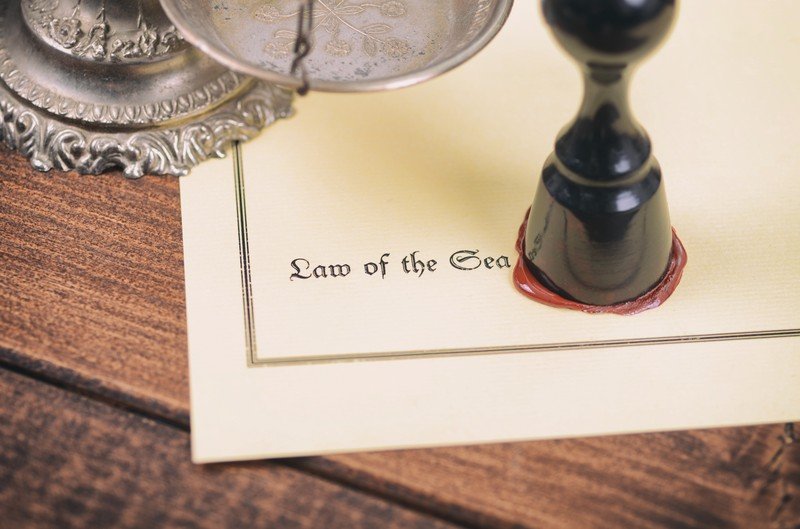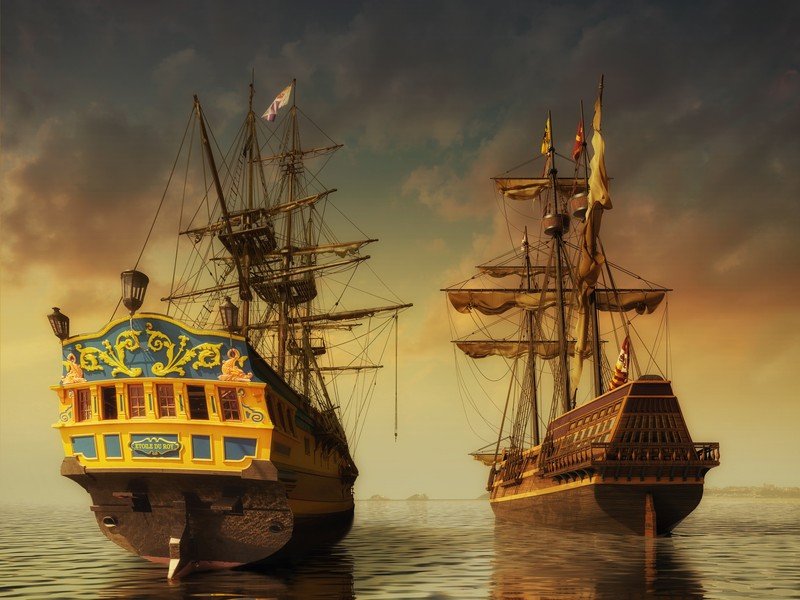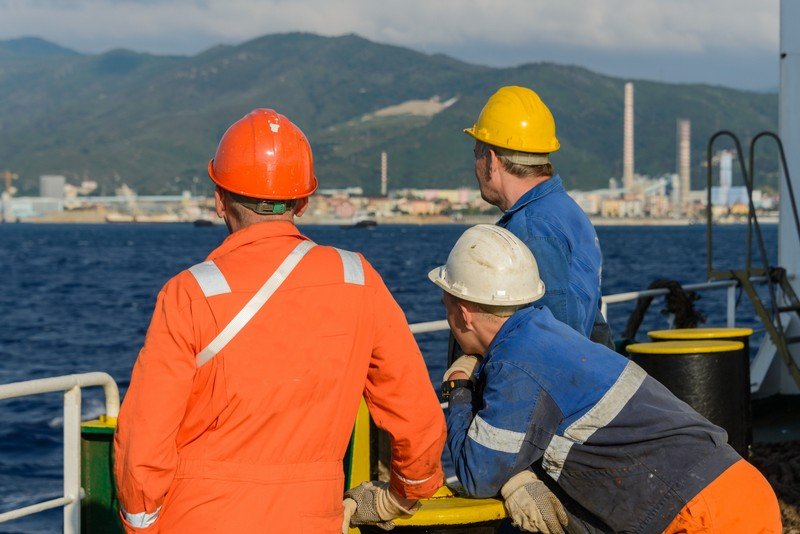
Blog
The Intriguing History of Maritime Law
Posted in Maritime Piracy
Modern Maritime Law is an interesting combination of some of the oldest seafaring standards imaginable and new regulations that were necessitated as the industry changed over time. Since ancient times, Maritime Law has governed topics including insurance, salvage, and the protection of ship workers.
Let’s discuss why the Law of the Sea developed as it did, then review a brief history of Maritime Law and the protections that the code traditionally provides to those who work on a vessel.
Why Was Maritime Law Created?
Maritime or Admiralty Law was first documented at the time of Ancient Egypt,1 to fill a very real need in the civilized world. In order for trade to flourish, ships needed to be able to travel from port to port with a reasonable expectation of safety and fair trade. Differing customs led local courts and tribunals to be locally biased. Eventually, it became clear that disputes needed to be settled in a single court system.
Shipowners and captains might employ sailors from all along their trade route and would need a clear understanding of how those seamen or their families would be compensated if they were seriously injured or lost at sea. Establishing the rights and responsibilities of ports and ship owners into formal law was essential to trade between nations and city-states.
Many of the old laws persist today because most of the challenges and hazards of maritime work remain the same. These jobs were, and continue to be, dangerous ones. Maintaining a seaworthy vessel and providing maintenance and cure to workers on board have always been prime responsibilities of ship and fleet owners.
Shipowners who do not abide by the code face claims in Admiralty Courts or in other national courts that are bound by Maritime Law. These courts have jurisdiction over many aspects of the shipping and passenger cruise industries. Now, as in the past, sailors can have a legal advocate, or maritime accident lawyer, by their side when making a claim for injuries sustained at sea.
The History of International Maritime Law
While there were unwritten customs of maritime behavior among the Egyptians, Greeks, and Phoenicians, the earliest formal codes were established on the island of Rhodes as early as 900 BC, and the law continues to evolve into the modern-day.
The Rhodian Sea Laws
The origin of this set of rules for the Mediterranean Sea began forming approximately 900 BC and was well established by 300 BC, governing seafaring trade and conduct in the area. It influenced Roman law from that point until 1200 AD. The Rhodian Sea Laws established a uniform standard for the treatment of merchant ships as they moved from port to port, and it introduced the concept that disputes arising at sea must be decided by “the maritime law of the Rhodians”1 rather than in local courts or councils.
The Consulate Of the Sea
As the Romans made use of the Rhodian Laws, special tribunals were created to rule on disputes between vessels, ports, merchants, and seamen. Between 1000 AD and 1300 AD, three separate codes of maritime law and court systems developed in the Mediterranean. The oldest of these was “Consolato del Mare” or the Consulate of the Sea, which was centered around the Italian seaport of Barcelona, Spain.
The Consulate of the Sea sought to address all aspects of the customary laws of the sea. It defined specifics regarding ownership of ships, the responsibilities of a shipowner and captain, the “average contribution,” salvage rights, the duties of sailors, and how much they should be paid.
Early European Codes of the Sea
From the budding laws of the sea in the Mediterranean, the early European maritime laws were further formalized by 1152 AD. These were summarized in the Black Book of the Admiralty in 1336 and were heavily influential in shaping Admiralty Law from that point on.4 Some of the notable legal concepts still honored today come directly from these examples:
• The Laws of Wisby (Baltic region)
• The Laws of Hansa Towns (Germanic region)
• The Laws of Oleron (French region)
The English System of Admiralty Law
The laws of Wisby, Hansa, and Oleron are considered the three pillars upon which British Admiralty Law was built. Keeping the fundamentals of historic sea law, the Admiralty Courts in England were challenged with the industrial revolution in the last half of the 1700s. The codes were updated for the changes that engines brought to the industry and for growing complexities in international relations as trade became more global.
Standing somewhat separate from the other English courts, the Admiralty Courts heard all nautical cases, including those of the British Colonies. The English Admiralty courts were unpopular in the new world, and they may have played a part in the American Revolution. They were charged with enforcing the Stamp Act and, as is customary under Maritime Law, those trials were without a jury. This may have led to the mention in the Declaration of Independence regarding “depriving us … of the benefits of Trial by Jury.”2
Maritime Law in America
Despite being a possible trigger for revolution, European admiralty doctrine was well established and a practical necessity for the new nation. As admiralty cases arose, they became part of American law as well. Many of the founding fathers and famous historical figures were themselves admiralty lawyers.2 Even back in 1789 when the U.S. Constitution was adopted, there was the same need for a good maritime accident lawyer to protect ship owners, seafarers, and ship workers.
Admiralty or Maritime Law in the United States governs:
- Marine commerce, pollution, and navigation
- Seafaring cargo and passengers
- Marine insurance and salvage
- Arrests at sea
- Ship collisions
- Towage and liens
- Personal injury claims where the incident occurred at sea
- Maintenance and cure for injured ship workers
- In general, any cases where the court may need jurisdiction over maritime property
How Does Maritime Law Protect Injured Workers?
As early as 1160 AD, the concept of “maintenance and cure” has existed as part of Maritime Law. The obligation of the shipowner has historically been to pay for medical care and devices for a sailor injured in service of the vessel; this is considered the “cure.” “Maintenance” is the shipowners’ obligation to cover living expenses while workers recover until they are fit for duty.
If these are not provided to injured ship workers, they have the established right to sue shipowners for maintenance and cure, as well as attorney fees. Punitive damages may even be awarded in cases where the failure to provide maintenance and cure is “willful and wanton.”3
The Jones Act of 1920 established the right of an injured seaman or surviving family member to file a lawsuit against the shipowner or employer for negligence that caused injury or death. Unlike most Maritime Court cases, a Jones Act trial may include a jury. Those who recover damages from a Jones Act lawsuit may be compensated for lost wages, lost earning capacity, medical expenses, and disfigurement, as well as pain and suffering.
A Long History of Protecting Injured Maritime Workers
Admiralty or Maritime Law exists not only to settle disputes between ship owners and ports. From the earliest days of seafaring, the traditions and laws of the sea have supported the rights of injured sailors, deckhands, and longshoremen. At Schechter, Shaffer, and Harris—Maintenance and Cure—we continue this long tradition of fair treatment for hardworking individuals.
As experienced Jones Act and maritime accident lawyers, Maintenance and Cure has a long history of advocating for maritime workers and helping their families steer toward a brighter future. With over 100 years of combined work on behalf of those injured at sea, there is no question where to turn for support and guidance in challenging times.
If you or a family member has been injured working on a vessel or oil rig, contact Maintenance and Cure today for a free consultation to discuss the facts of your situation. Your time to file a claim may be limited, so it is best to know your rights under Maritime Law. We offer a no fee unless you win payment structure and clear guidance on plotting a course to healing and financial safety.
Sources:















